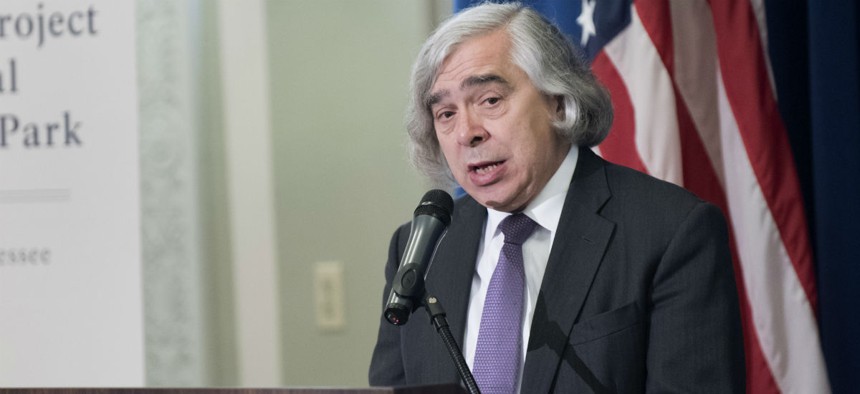Energy Invests $125 million in Green Tech Projects

Energy Secretary Ernest Moniz speaks at a signing ceremony for a memorandum of agreement to establish the Manhattan Project National Historic Park, Tuesday, Nov. 10, 2015, at the Interior Department in Washington.
Days before COP21 in Paris, Energy Secretary Ernest Moniz is emphasizing the department's commitment to "innovation."
Days before a multinational summit in Paris about sustainable energy, Energy Secretary Ernest Moniz is talking up department's commitment to new, emerging technology.
Surrounded by entrepreneurs at Washington startup incubator 1776, Moniz on Monday announced the department's $125 million investment in 41 early-stage green technology projects.
Awardees include teams developing lower-cost wind turbines and heat-trapping insulation, among many others in topics such as transportation and energy efficiency. More than one-third of the teams were from universities; almost 40 percent were from small businesses, and 10 percent were from national laboratories.
The 41 funded projects represented just 2 percent of submissions, Moniz said.
"We think these are promising but high-risk technologies," Moniz said.
Energy's 6-year-old Advanced Research Projects Agency-Energy, or ARPA-E, put out an open call for ideas in January. The agency backs projects that could succeed in the commercial market, but that are likely too early for private sector investment.
Moniz's visit to 1776 comes a week before COP21 Climate Negotiations in Paris, a climate action and sustainable energy meeting to be attended by 147 heads of states.
Awardees included an Texas A&M team working on a system that can create 3-D images of roots in soil, allowing farmers to better understand their crop yields and soil health, and a group from the University of Colorado, Boulder, working on heat-reflecting paint coating for windows that can reduce building cooling requirements.





